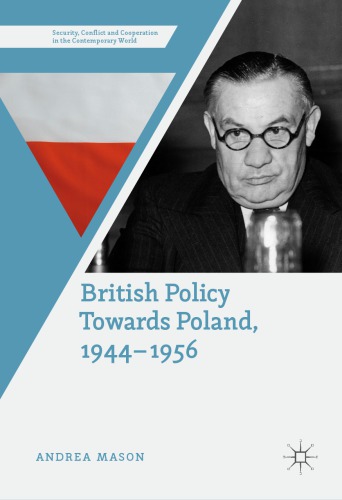

Most ebook files are in PDF format, so you can easily read them using various software such as Foxit Reader or directly on the Google Chrome browser.
Some ebook files are released by publishers in other formats such as .awz, .mobi, .epub, .fb2, etc. You may need to install specific software to read these formats on mobile/PC, such as Calibre.
Please read the tutorial at this link: https://ebookbell.com/faq
We offer FREE conversion to the popular formats you request; however, this may take some time. Therefore, right after payment, please email us, and we will try to provide the service as quickly as possible.
For some exceptional file formats or broken links (if any), please refrain from opening any disputes. Instead, email us first, and we will try to assist within a maximum of 6 hours.
EbookBell Team

0.0
0 reviewsThis book examines the outcome of the British commitment to reconstitute a sovereign Polish state and establish a democratic Polish government after the Second World War. It analyses the wartime origins of Churchill’s commitment to Poland, and assesses the reasons for the collapse of British efforts to support the leader of the Polish opposition, Stanisław Mikołajczyk, in countering the attempt by the Polish communist party to establish one-party rule after the war. This examination of Anglo-Polish relations is set within the broader context of emerging early Cold War tensions. It addresses the shift in British foreign policy after 1945 towards the US, the Soviet Union and Europe, as British leaders and policymakers adjusted both to the new post-war international circumstances, and to the domestic constraints which increasingly limited British policy options. This work analyses the reasons for Ernest Bevin’s decision to disengage from Poland, helping to advance the debate on the larger question of Bevin’s vision of Britain’s place within the newly reconfigured international system. The final chapter surveys British policy towards Poland from the period of Sovietisation in the late 1940s up to the October 1956 revolution, arguing that Poland’s process of liberalisation in the mid-1950s served as the catalyst for limited British reengagement in Eastern Europe.